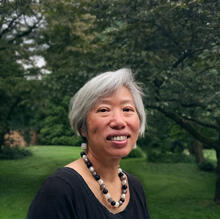Artificial neural networks learn by minimizing a loss function with a computer to achieve the desired result. Alternatively, many forms of neuromorphic computing use local learning rules inspired by biological learning. We adopt a third approach, focusing on far simpler networks that exploit physics to both perform the forward computation and to obtain local learning rules that replace back propagation. Our Coupled Learning framework can potentially be implemented in mechanical and fluidic networks. It has been realized by our collaborators in laboratory electrical networks, one using digital variable resistors and the other using transistors, paving the way for micro fabrication of very large networks that learn in a distributed fashion, potentially requiring much less time and power for training than standard artificial neural networks.
Host: Ian Moult (ian.moult@yale.edu)
Physics Club: Andrea Liu, University of Pennsylvania, “Physics for Learning”
Event time:
Monday, February 6, 2023 - 3:30pm to 4:30pm
Location:
Sloane Physics Laboratory (SPL), Room 57
217 Prospect Street
New Haven, CT
06511
Event description:
Contact:
(see "Description" above)
